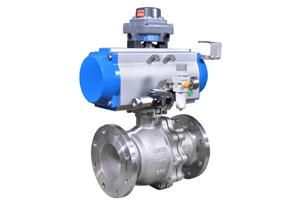Jun. 09, 2021
Ball Valve vs Gate Valve
Choosing the right valve can determine the success or failure of the system. In today's market, with so many types of valves, it may be difficult to find the most ideal valve for your application.
The main difference between the ball valve and gate valve
Ball valves are also called "shut-off valves." Ball valves are the only way to immediately shut off the flow of water. The gate valve cannot be turned immediately. Except for three-way ball valves, machined stops can prevent most ball valves from moving more than 90 degrees.

Gate valvesusually have a round knob, which you can turn to control the flow of water. This raises or lowers an internal gate to stop or start the water. The gate valve provides control over the flow pressure, rather than simply closing or opening it. Gate valves provide users with greater flow and pressure control than ball valves, but they do not provide users with the option to stop the flow immediately. For those who wish to use gate valves but are concerned about corrosion, stainless steel gate valves are incredibly flexible and are not more susceptible to corrosion than ball valves.
Before asking the question "Is a ball valve better than a gate valve", we need to determine the key difference between the two. The first thing to remember is that they all have essentially the same function, which is why they are so similar.
The main difference between ball valves and gate valves lies in the quality of their structure and the way they are marked. When the gate valve is opened, the circular or rectangular gate is lifted from the fluid passage, while the ball valve has a rod and a horizontally rotating ball. This is why ball valves are often called rotary valves.
The gate valve has a sealing surface that separates the gate plate and the valve seat. Therefore, they are usually used when a straight-line flow of fluid and minimal restriction are required. Because the ball valve is a form of the quarter-turn valve, their functions are different. They use hollow balls, both perforated and rotated to control the flow. When the ball hole is consistent with the flow, the valve opens. When the valve handle rotates 90 degrees, it closes, and the handle lies flat. It is horizontal to the flow when it is opened, and perpendicular to the flow when it is closed. This makes it easy to visually confirm the state of the valve.
Are better ball valves than gate valves?
The advantage of ball valves and gate valves is that their seals are tighter, so they are better at avoiding leakage than gate valves. This is due to its 100% shut-off characteristics. In addition, they are easier to use than gate valves, have a lower failure rate and a longer service life.
The durability of the ball valve makes it ideal for closed applications. They always perform well after multiple cycles, and are reliable, and can be safely shut down even if they are not used for a long time. For these reasons, they are generally preferred over gate valves and globe valves.
Previous: Ball Valves
Headquarter Add.: SUPCON Park, No.309 Liuhe Road, Binjiang District, Hangzhou, 310053, China.
Tel.: +86 571 8111 9774
Fax: +86 571 8111 9737
E-mail: [email protected]
